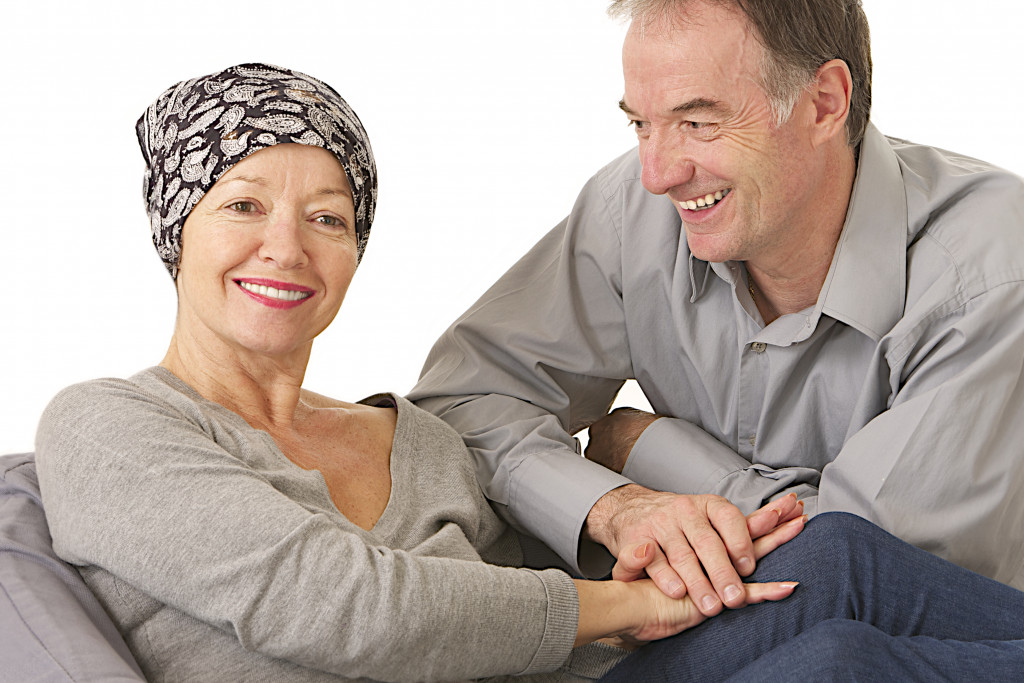Disclaimer: This website provides health information for educational purposes only and is not a substitute for professional medical advice, diagnosis, or treatment. Always seek the guidance of a qualified healthcare provider with any questions you may have.
- Manage pain effectively using various methods such as medications and physical therapy.
- Hire a professional home hospice nurse to provide support and guidance.
- Provide physical comfort with comfortable bedding and clothing, massage, switching positions, and cushions.
- Offer emotional comfort through psychiatrists, counselors, and spiritual care providers.
- Pay attention to nutrition and hydration, including monitoring fluid intake and modifying meals.
The end of life is a tough journey, but it’s a reality everyone will face. This journey can be physically and emotionally challenging for the person directly experiencing it and their loved ones. Providing the utmost comfort for loved ones during end-of-life care should be a top priority. Here are some ways to ensure they are comfortable during this difficult time.
Manage Pain Effectively
Pain is a common symptom during end-of-life care. It is essential to manage pain effectively to ensure your loved one is comfortable. Multiple pain-relief options are available, such as medications, physical therapy, and alternative treatments like music and art therapy.
Consult with the healthcare team to ensure pain relief measures are used effectively and appropriately. They can help you develop a plan that best fits your loved one’s needs and manage the pain with the utmost care.
Hire a Professional
Hiring professional help, such as a home hospice nurse, can provide much-needed support for the patient and their family. Hospice caregivers are trained to provide compassionate care and support, not just for the patient’s physical needs but also for their emotional and spiritual well-being. They can assist with pain management, symptom control and offer guidance to family members on how to best navigate the end-of-life process.
Provide Physical Comfort
At this stage, loved ones should be comfortable and relieved from discomfort. Ensure that bedding and clothing are comfortable and the room is well-ventilated to maintain a comfortable temperature. Massage, switching positions, and providing comfortable cushions can help relieve pain and soreness.
Emotional Comfort
The end of life can be emotionally overwhelming for the patient and the loved ones. Support and comfort are essential to ease these emotions. Ensure loved ones can access psychiatrists, counselors, and spiritual care providers. Other comfort measures, like visiting loved ones, playing music, or reading books, can be helpful.
Pay Attention to Nutrition and Hydration
One vital aspect of care that often gets overlooked is nutrition and hydration. Ensuring your loved one gets enough nutrients and fluids can improve their comfort and quality of life during this time. Here are some practical tips on paying attention to nutrition and hydration when caring for your loved one in their last days.
Talk to the healthcare team
First and foremost, it is crucial to have open communication with the healthcare team. They can assess your loved one’s nutritional needs and guide you on dietary restrictions or recommendations.
They may also suggest supplements if your loved one has trouble eating or drinking. However, it is essential to remember that every person’s needs and preferences are unique, so do not hesitate to advocate for your loved one.
Offer favorite foods and drinks
While following dietary guidelines is essential, offering foods and drinks that your loved one enjoys is equally crucial. Providing their favorite snacks and drinks or simply having their favorite music playing in the background can help create a positive environment that makes them feel more comfortable and relaxed.
Make modifications to meals
In many cases, your loved one may have difficulty eating or swallowing. Simple modifications such as pureeing, blending, or cutting food into smaller, more manageable pieces can make a big difference. Similarly, providing thicker or thinner liquids based on their swallowing abilities can help with hydration.
Monitor fluid intake
Dehydration is a common concern during end-of-life care. Typically, a person requires 30 ml of fluids per kg of body weight per day. However, this may vary based on their medical condition, age, and other factors. Keeping track of fluid intake and checking for signs of dehydration, such as dry mouth or skin, can prevent complications and improve comfort.
The Bottom Line
Providing the utmost comfort for loved ones at the end-of-life stage is crucial to ensure they pass away peacefully and with dignity. Paying attention to pain management, nutrition, hydration, providing physical and emotional comfort, and ensuring a peaceful environment can provide the essential care needed during the end stages of life.
Open communication with healthcare providers and the patient’s loved ones can provide the best care possible for the end-of-life journey. Remember, the end-of-life journey is a humbling experience, and providing your loved one with the best possible care is the ultimate show of love and compassion.
